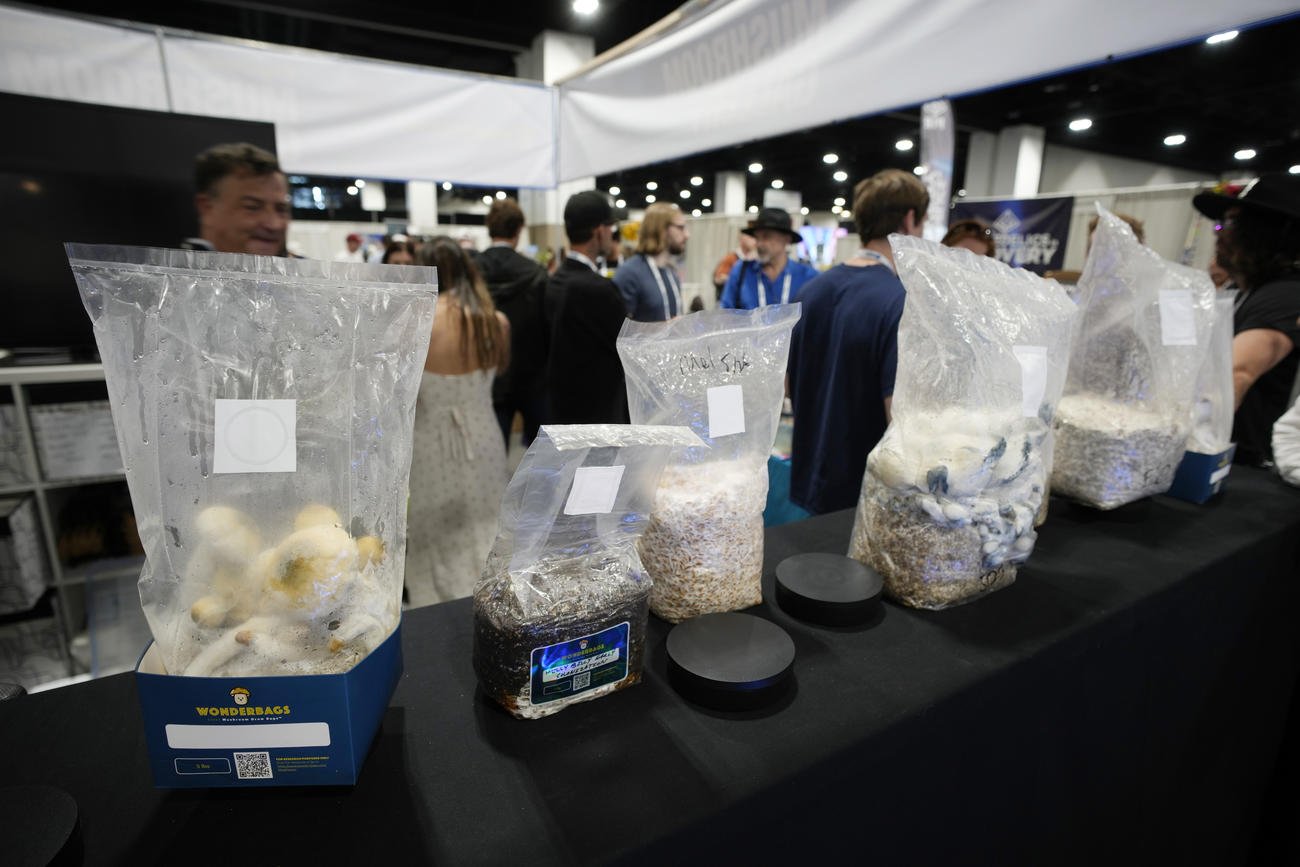
The Department of Veterans Affairs has announced new funding for research into the potential use of psychedelic substances to treat post-traumatic stress disorder and depression in former military personnel.
The VA on Friday issued a request for applications from researchers and academic institutions on potential research into the safety and efficacy of psychedelic drugs such as MDMA, psilocybin — the active ingredient in “magic mushrooms” — and other compounds to address mental health conditions.
According to the VA, it is the first time in nearly six decades the department will fund such research and comes amid a growing but cautious optimism among the veteran community and Congress that the drugs, widely associated with illicit party culture, could offer breakthrough treatments for the unseen wounds of war and military service.
Read Next: Staff Warned About the Lack of Psychiatric Care at a VA Clinic. They Couldn’t Prevent Tragedy.
“Veterans and VA researchers have told us about the potential promise of psychedelics to treat mental health conditions for some time,” VA Under Secretary for Health Dr. Shereef Elnahal said in a statement Friday. “Now is our chance to study this potential method of treating veterans with PTSD and major depression across the country.”
VA researchers previously have conducted studies on the use of psychedelics, including MDMA, known also as the recreational drug molly or ecstasy, and psilocybin, but those studies have been funded by private institutions.
Officials did not say how much funding the department plans to award researchers for the studies. The details of the request for application were not available as it has yet to be published online.
In September, VA researchers and scientists met with other federal health officials for a conference on psychedelic-assisted therapies that combine the use of psychedelic substances with psychiatric therapy.
At the time, Elnahal said VA researchers are interested in determining how to support the research nationwide and build the infrastructure needed to expand clinical trials in light of success by organizations such as the Multidisciplinary Association for Psychedelic Studies, which has completed two clinical trials on the potential of MDMA to treat PTSD and has filed a New Drug Approval application with the Food and Drug Administration for the controlled substance.
VA officials said the research, which will involve substances that are tightly restricted under federal law, will be “completed under stringent safety protocols.” The VA will work with the FDA as well as the Drug Enforcement Administration to ensure compliance with federal law, officials said.
The fiscal 2024 National Defense Authorization Act, signed by President Joe Biden on Dec. 22, required the Defense Department to establish a process also to fund research on psychedelic substances for mental health conditions.
The law also gave the defense secretary flexibility to let active-duty service members participate in clinical trials involving psychedelic therapies, but it did not mandate the requirement.
Under the legislation, the Defense Department must submit a report on the research as well as the number of active-duty members participating, their clinical results and whether they were able to return to duty.
Among the psychedelics that would be covered by the law are MDMA; psilocybin; 5-Methoxy-N,N-dimethyltryptamine — a fast-acting psychedelic substance derived from toad venom also known as 5-MeO-DMT; other “qualified plant-based alternative therapies;” and ibogaine, a compound found in the roots of an African shrub that has been used for centuries in spiritual and healing ceremonies.
On Friday, as the VA announced its new funding, scientists at Stanford University published research in the journal Nature that showed, when combined with magnesium, ibogaine “safely and effectively” reduced anxiety, PTSD and depression symptoms in a study involving 30 U.S. special operations veterans.
The study was sparked, according to Dr. Nolan Williams, an associate professor of psychiatry and behavioral sciences at Stanford, by veterans who had been traveling to Mexico for ibogaine treatments.
Researchers wanted to determine whether data would back up the improvements in symptoms that had been reported by the veterans.
According to the study, participants experienced average reductions of 88% in PTSD symptoms, 87% in depression symptoms and 81% in anxiety symptoms relative to how they were before treatment.
“No other drug has ever been able to alleviate the functional and neuropsychiatric symptoms of traumatic brain injury,” Williams said in a statement released by the university. “The results are dramatic, and we intend to study this compound further.”
VA Secretary Denis McDonough said in a statement Friday that the VA is dedicated to exploring the potential of psychedelics to “improve the health and quality of life for veterans.”
“Our nation’s veterans deserve the very best care, and VA is constantly supporting innovations to deliver that,” McDonough said.
Related: Veteran Psychedelic Therapy Gets Cautious Support at First House Hearing of Its Kind Since 1960s









